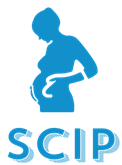The SCiP Study: Smoking cessation in Pregnancy
Study summary:
Smoking has long been recognised as the single largest modifiable risk factor for poor outcomes in pregnancy. This continues postnatally, with women who smoke having a four-fold increased risk of SIDS.[i] It is well known that smoking is a behaviour that cohabits with social disadvantage and psychological comorbidity.[ii][iii] Where the paucity of evidence lies is answering why.
We cannot expect interventions to consistently increase quit rates in pregnancy without an improved understanding of the relationships between a woman’s demographic factors, the intervention delivered and smoking behaviours. This qualiatative study aims to investigate factors associated with continued smoking in pregnancy.
It will improve current evidence base by investigating gaps identified in both 2009 the National Institute of Clinical Excellence (NICE) developed guidance on Quitting smoking in pregnancy and following childbirth and A WHO expert working group (Hunt 2012).
Objectives
- Investigate womens’ perceptions of different interventions offered to promote smoking cessation in pregnancy.
- whether the site or setting of an intervention influence the impact
- Investigate the perceptions of interventions in vulnerable population groups, including young mothers, women with mental illness, and women living in deprived areas.
- Explore perceptions of women who do not engage, or discontinue use of smoking cessation services in pregnancy.
We will recruit up to 30 pregnant women from BNSSG smoking cessation services for individual semi-structured interviews. Each of the 4 focus groups will have up to 5 participants according to demographic:
- Women who smoke in pregnancy with concurrent mental health diagnosis e.g. depression, anxiety
- Women who smoke in pregnancy who live in an LSOA (Lower layer super output area) in the bottom 2 deciles of deprivation
- Women who smoke in pregnancy who are 16-25
- Women who smoke in pregnancy who decline referral or discontinue use of smoking cessation services (SSS)
Study timeline:
This study started in March 2021 and will conclude in March 2022
Further details:
This study is funded by BNSSG Local Maternity System and sponsored by the University of Bristol
Study contact:
Chief investigator Dr Sadie Mullin the-scip-study@bristol.ac.uk
